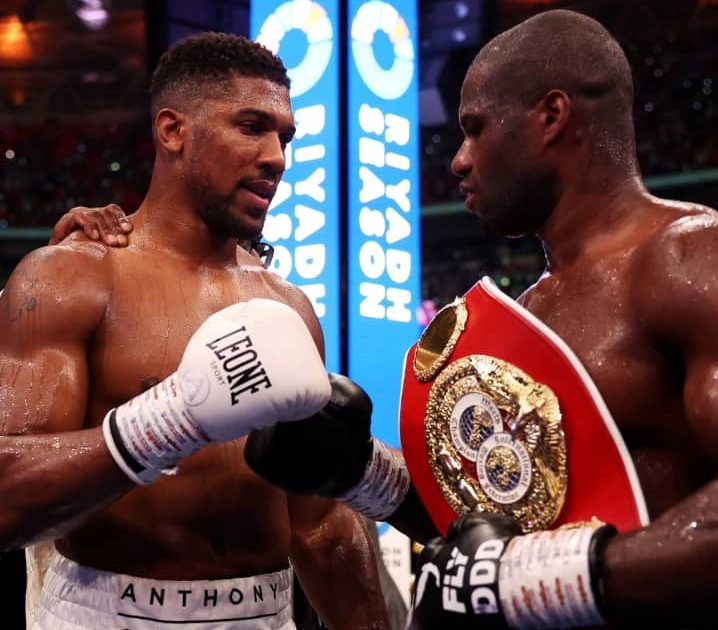Former heavyweight boxing champion Anthony Joshua has been placed under a 28-day suspension following his knockout defeat to Daniel Dubois at Wembley Stadium, a consequence mandated by the British Boxing Board of Control. This type of suspension is a common protocol for fighters who have endured TKO or KO losses, as outlined by the Association of Boxing Commissions and Combative Sports. The specific incident saw Joshua hit the canvas three times, culminating in a decisive fifth-round knockout delivered by Dubois, who is often referred to as ‘DDD’. This defeat signals a troubling trend in Joshua’s career, as it represents his fourth professional loss, with earlier setbacks occurring against Andy Ruiz Jr. in 2019, alongside two consecutive losses to Oleksandr Usyk in 2021 and 2022.
The implications of this suspension, while unlikely to alter any immediate plans for Joshua as he currently has no scheduled fights, have ignited discussions concerning his future in boxing. Former boxer Carl Froch voiced significant concern over Joshua’s capabilities and mindset after witnessing his performance in the ring. Froch described Joshua’s showing as lacking ambition and self-belief, suggesting that he appeared exhausted and incapable of recovering effectively from the blows absorbed during the fight. His comments reflect a broader sentiment within boxing circles, questioning Joshua’s readiness and willingness to continue competing at a high level.
Froch’s criticism highlighted a critical point in Joshua’s career, as he expressed doubts about the fighter’s eagerness to remain in the sport. He articulated a belief that the recent fight may have signaled a turning point for Joshua, stating, “I question Anthony Joshua’s desire to be in that boxing ring anymore.” Such statements contribute to a narrative that Joshua may be at a crossroads, faced with pivotal decisions about his athletic future and the potential need for significant introspection regarding his goals in boxing.
In contrast, Joshua himself has conveyed a resolute determination to reclaim his position in the boxing world. Through a video statement shared on his X page, Joshua thanked his supporters for their ongoing loyalty throughout his boxing journey. He emphasized the importance of maintaining a positive mindset despite the recent setback. “We came up short, but we have to focus on all the positives,” he remarked, highlighting a philosophy of resilience. Joshua’s perspective signals that he is not contemplating retirement, instead focusing on the achievements amassed over his professional career lasting over a decade.
The juxtaposition between Froch’s criticism and Joshua’s optimistic outlook paints a complex picture of a champion grappling with defeat. As Joshua works to process this loss, he indicated an awareness of the highs and lows that characterize a professional boxing career. The phrase “what a rollercoaster journey” resonates with anyone familiar with the volatility and unpredictability of the sport. Joshua’s commitment to focusing on the positives positions him as an athlete who not only understands the challenges associated with maintaining a career in boxing but also recognizes the ongoing support from fans and the necessary mental resilience required to overcome adversity.
Ultimately, Anthony Joshua’s recent knockout defeat has catalyzed discussions about his boxing future, balancing between skepticism voiced by commentators like Froch and Joshua’s unyielding determination to persist in his pursuit of world titles. As he navigates the implications of his suspended status and seeks a pathway forward, the crucial questions about his intentions, aspirations, and mental fortitude loom large. The coming weeks will likely reveal more about both Joshua’s immediate plans in the ring and his capacity to respond to criticism while reconstructing his narrative as a dominant competitor in professional boxing.














